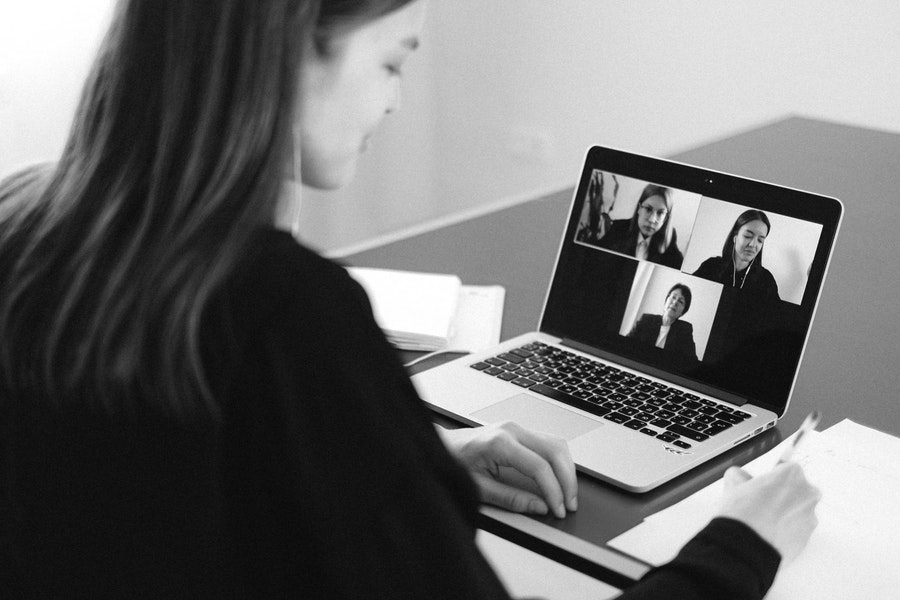Thinking, behaving and succeeding as a team when we can’t spend time together doesn’t have to be a problem.
The coming of autumn normally heralds a period of change: we see leaves turn shades of gold and red, we start to wear coats again after the long summer, and we cast our eyes forward to the end of the year – with those who like to be prepared even making a start on their festive planning. This year, though, the biggest change is the chance to spend time again with our colleagues – and indeed our friends – in the workplace.
Unfortunately, the challenge of reconciling social distancing with office layout remains. We may want to reunite all our teams and to gather with people from across the business, but we must accept that this is not practical for most companies, given the typical office environment and the number of people it must accommodate.
Manifold solutions have been proffered: red and blue days, a fixed day for each team, drop-in space booked through an app, added capacity in the form of short-term leased or flexible office space; all are worthy in their own right and as a collective solution. This does not, however, get us past the fact that there will be some days when the person you want to see will be working remotely or there won’t be a space large enough to accommodate everyone who wants to attend a meeting or to spend time collaborating.
If we see this as a temporary situation,
we are likely to come up with answers
that are fleeting in their effectiveness
If we see this as a temporary situation, we are likely to come up with answers that are fleeting in their effectiveness. However, if we take the view that this may well be a longer-term situation, a different way of working, then we have a better chance of creating a more permanently successful solution. We have to create a remote-plus way of working where we recognise people will be operating from disparate locations for an extended period of time. Gone are the days when people dialling in for a meeting were somehow seen as on the periphery and their views given perhaps less respect than if they had been physically present. It seems almost quaint to expect everyone on a meeting invite to be able to sit around a table in the same room. And it is important that people feel part of their team, whether they are in daily proximity with everyone or not.
I have a team that covers EMEA and also work closely with colleagues in the US and across the Asia-Pacific region. The recent situation of us all working remotely has been a great democratiser: the team around me in London get no more face time with me now than do our colleagues in Moscow, Madrid or Warsaw. The possibility of working across borders and time zones is no longer unusual: whether it’s a call at 10pm or 5am, it matters little in the fluid time- and location-agnostic environment in which we find ourselves. The vital thing is that people feel part of a team – a small team for project and task-related activity and a bigger team that fits into a more organised structure.
All this creates challenges but also amazing opportunities. There seems to be a growing consensus that it’s important to spend time in communication with colleagues from across the broader aspects of the business as well as your direct team. I have spoken with more people – both clients and colleagues – in the past four months than I have in the past four years. Whether this is just because ‘normal’ work tends to be a matter of coming into the office, getting your head down and following a routine and that’s been forced to change, or because this has been a time of huge demand for knowledge and insight, is not important. The simple fact is that the desire to be in contact with others has risen, along with the expectation that we should.
I have spoken with more people – both clients
and colleagues – in the past four months
than I have in the past four years
As we begin to spend more time back in the office, we must retain the wider connectivity we have seen work so well while away from this shared physical environment. We must ensure we view people working remotely in the same way we view those in the office. Meetings and projects have to be developed in a way that has, at its heart, connectivity beyond the office walls. There have been some positives from the lockdown experience, evidence that we can work together from remote locations being perhaps the foremost.
We are not going to get to a point any time soon where every person from every team is back in the same office on the same day. And there won’t suddenly be a huge uplift in collaboration, innovation and teamwork because people are spending more time in the office than they were a few months ago. We are going to see increased collaboration, teamwork and innovation by bringing people together as a virtual team spread over different locations, in different time zones, sharing different thinking and experience.
Let’s encourage diverse groups of people to work together, people that might not regularly get to engage with one another. Why not see what new teams of people can do, people sitting in far-flung corners of our corporate environments? There is some amazing talent waiting to be given a chance, to have the opportunity to work in a new, virtual team. Be aware, be diverse and be a team.







